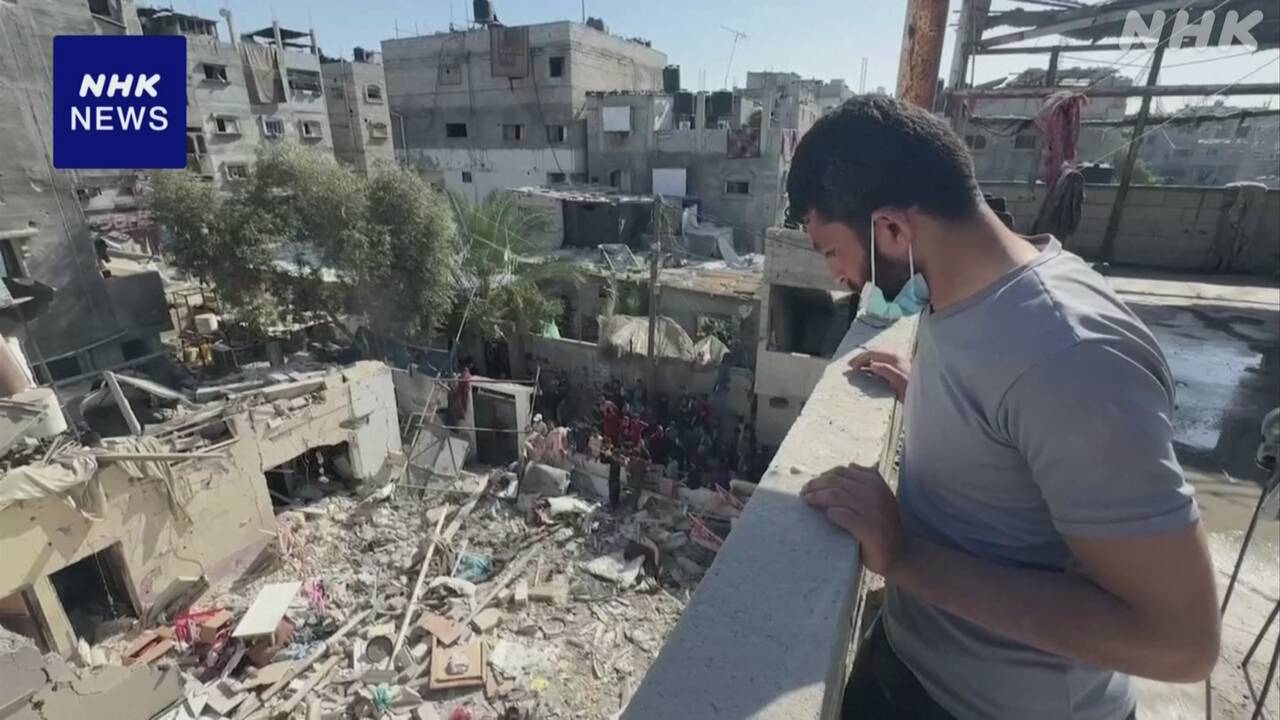Seven days have passed since the start of fighting between Israel and the Islamic organization Hamas, marking six months since the start of the conflict in the Gaza Strip, where Israeli military attacks continue, with the death toll in the Gaza Strip exceeding 33,000, and the humanitarian situation worsening.
There remains a wide gap between the positions of both sides regarding negotiations for a cessation of hostilities, and the focus is on whether the international community can step up its efforts and find a way to reach an agreement.
In October last year, approximately 1,200 people were killed on the Israeli side in a cross-border attack by Hamas, which effectively controls the Gaza Strip, and 7 days will mark six months since the Israeli military launched a military operation in retaliation. The Israeli military continues to carry out airstrikes in the Gaza Strip, and health authorities in the Gaza Strip say 33,137 people have died so far.
In addition, the humanitarian situation in the Gaza Strip is worsening, with UN agencies and other organizations pointing out that famine is imminent.
Regarding negotiations for a cessation of fighting and the release of hostages, Hamas announced in a statement on the 6th that a delegation would visit Egypt on the 7th, and the American news site Axios also reported that Israel, the United States, and intermediary countries will be negotiating in Egypt. It has been reported that talks are expected to take place.
However, while Hamas is calling for a ceasefire, Israel has indicated that it is necessary to destroy Hamas and has indicated that it is prepared to carry out ground operations in southern Rafah.The gap between the positions of the two sides remains large, and the international community including the United States is calling for a ceasefire. The focus is on whether we can find a way to strengthen agreement.
Criticism of Israeli Prime Minister Netanyahu intensifies
Prime Minister Benjamin Netanyahu has been increasingly criticized for not being able to free more than 130 hostages in Israel and for prolonging the fighting in the Gaza Strip.
On the night of the 6th, large-scale demonstrations were held across Israel demanding an agreement with Hamas to free the hostages and Prime Minister Netanyahu's resignation, with several thousand people gathering in Tel Aviv.
A man who was participating in the demonstration complained, ``Prime Minister Netanyahu is toying with the lives of the hostages for political reasons. We must accept the agreement and release the hostages as soon as possible.''
Another man criticized Prime Minister Netanyahu, saying, ``Prime Minister Netanyahu is prolonging the war without having an exit strategy for military operations in the Gaza Strip.''
Expert: “Prime Minister Netanyahu has no choice but to continue fighting”
Looking back on the fighting that has continued in the Gaza Strip for the past six months, Hiroyuki Suzuki, a specially appointed associate professor at the Center for Middle East Studies at the University of Tokyo, who is an expert on the Israeli-Palestinian situation, says, ``Honestly, I never expected it to last this long.'' Regarding the cause of the prolonged fighting, he said, ``Prime Minister Netanyahu has been fighting for half a year with the goal of releasing the hostages and destroying Hamas, but public opinion has spread to demand responsibility for the failure to free the hostages, and the final We are being forced to make very difficult political decisions regarding the outcome.As long as the goals of the fighting are not achieved, we are in a situation where we have no choice but to continue fighting.''
Furthermore, with no end in sight to the end of the fighting, Israel plans to continue its ground operations in southern Rafah, stating, ``There are deep-rooted voices in Israel that the fighting should continue, and calls for an end to the fighting have not become mainstream public opinion.'' He expressed the view that there is a high possibility that he will take action.
“The international community cannot stop the fighting, and we are deeply disappointed in the people of Gaza.”
On the other hand, regarding the serious humanitarian situation in the Gaza Strip, ``Houses and hospitals have been attacked in a manner that is almost indistinguishable, and the damage is on an order of magnitude greater than in past battles.There are also starvation conditions due to the blockade, and many people ``People have died, but we don't even have an accurate grasp of the extent of the damage,'' he said, expressing strong concern.
He then pointed out the responsibility of the international community, including Japan, stating, ``The fact that the international community was unable to stop Israel even though it caused so much damage brought deep disappointment to the people of Gaza.''

